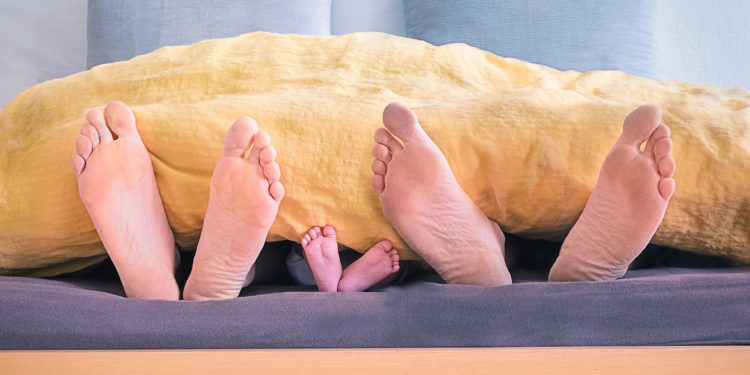Sleep, Health and Your Wellness

Story by David Turkowitch, Research Assistant in the Sleep Health and Wellness Lab
The fountain of youth does exist (metaphorically, of course). The real grace of this otherwise fictional lore sweeps across the world nightly as everyone lays down to rest. Sleep can be said to be the bedrock to health, foundational for nearly every, if not, every single facet of one’s health. Sleep is critical for learning and memory, immune functioning, pain modulation, cardiovascular health, weight management, and much more. However, if one is unable to receive enough sleep there are myriad consequences both over the long-term and just after even one night of poor or shortened sleep. You can probably think of time in the not too distant past where you missed out on some sleep for one reason or another. Just think for a minute: How did you feel the next morning? Were there any changes in thinking or memory? How were your energy levels throughout the day?

Despite the overwhelming evidence that sleep is critical for one’s overall health and is directly associated with abating numerous diseases, including Alzheimer’s Disease, sleep has historically been overlooked in conversations surrounding health and wellness. As of 2020, about 40% of the US population was suffering from insomnia, a disorder characterized by the impacting of daytime functioning due to difficulty falling asleep, maintaining sleep, or waking up too early at least 3 nights per week for 3 months. Even more astounding may be the rate at which sleep disorders are undiagnosed and untreated. Nearly 90% of adults in the general population with significant sleep-disordered breathing remain undiagnosed. It may be that the metaphorical fountain of youth exists, but just as it is in folklore, it remains elusive.
According to Dr. Matthew Walker, sleep researcher at UC Berkeley and author of Why We Sleep: “The shorter your sleep, the shorter your life. The leading causes of disease and death in developed nations — diseases that are crippling health-care systems, such as heart disease, obesity, dementia, diabetes, and cancer — all have recognized causal links to a lack of sleep.” However, all is not so bleak; in fact, there are behaviors you can adopt today that could improve your sleep immediately.
Here is a short list of behavior recommendations that Dr. Catherine Siengsukon, Associate Professor and director of the Sleep Health and Wellness Lab, at The University of Kansas Medical Center, suggests for a better night’s sleep:

- Maintain a fairly regular sleep schedule. Plan to wake up at the same time every day. Go to bed around the same time, but don’t go to bed until you are reasonably sure you will fall asleep easily.
- Avoid lying in bed for more than 15-20 minutes if you are not able to fall asleep. Get out of bed if you are safely able to and do something relaxing.
- Increase your “sleep drive.” Your natural urge to want to fall asleep is heightened by physical and mental activity during the day and lowered by taking naps.
- Darken your room. Our brain responds to light as a signal to awaken and dark as a signal to sleep.
- Avoid alcohol, caffeine and smoking a few hours before bedtime.
- Consider limiting your fluid intake a few hours before bed so a needed trip to the bathroom doesn’t wake you prematurely.
- Avoid a large meal before bedtime. A light snack might be helpful to reduce nighttime stomach rumblings.
- Learn relaxation techniques that involve controlled breathing and muscle relaxation. Siengsukon and associates teach specific skills to their clinical trial participants, but many relaxation techniques are available online or in relaxation apps.
- Talk with your doctor if you are having difficulty sleeping to determine what might be causing disrupted sleep and what might be helpful for you specifically.
If these don’t do the trick, then there is another tool in the arsenal, that Dr. Siengsukon and her team of researchers at KUMC are currently studying: Cognitive Behavioral Therapy for Insomnia (CBT-I), the figurative water within the fountain of youth. CBT-I is a structured, evidence-based sleep intervention approach used to improve an individual’s cognitions and behaviors surrounding sleep. For example, an interventionist trained in administering CBT-I will work with an individual suffering from insomnia for an hour per week over 6 consecutive weeks to review healthy sleep hygiene, set a sleep schedule, discuss strategies for sticking to that schedule, discuss various relaxation techniques, address negative sleep beliefs, and in general, help to improve one’s overall relationship with sleep. The goal and strategies may look different for certain individuals, however, oftentimes the aim is to increase the total amount of sleep one is getting on average (to that of above 7 hours per night), and to keep sleep efficient, meaning that nearly all the time spent in bed is spent in a restful state of slumber.
Researchers in the Sleep Health and Wellness Lab are currently studying the relationship between this CBT-I intervention, cognitive function, and Alzheimer’s disease in older adults suffering from insomnia. It has long been established that there is an association between the two; less sleep is correlated with lower levels of cognition and higher rates of Alzheimer’s disease. How might a lack of sleep cause, or contribute to Alzheimer’s disease?
Researchers think that it may have something to do with sleep’s innate neuroprotective ability; without it, or without enough of it, the protein strongly implicated in causing Alzheimer’s disease may not be able to be “drained” out of the brain in a protective manner generally done during sleep. In a first of its kind study called the SIESTA (Sleep Intervention to Enhance cognitive Status and reduce beTa-Amyloid) study, the impact of CBT-I is being directly looked at regarding cognition and this beta Amyloid protein. The question the researchers at KUMC are trying to answer is: Can directly improving sleep improve one’s cognition and thus your chances of avoiding/mitigating Alzheimer’s disease?


You’ll have to wait for the answer to that question. The SIESTA Study is an ongoing Clinical Trial that is actively recruiting and is slated to finish in 2023. You may be eligible to participate in the study if you fit the following requirements:
- You are 60-85 years old
- Have experienced difficulty falling asleep, maintaining sleep or waking up too early at least three nights per week for the past six months.
- You do not have any other untreated sleep disorder (such as sleep apnea or restless leg syndrome).

If you are interested, contact Eryen Nelson, the study coordinator, at 913-945-7349. To learn more about the Sleep Health and Wellness lab and the SIESTA study, go to SleepWell.kumc.edu.



